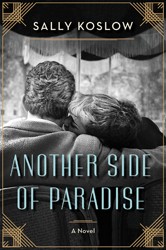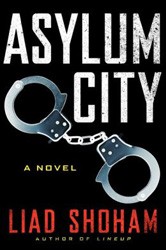The end of a trilogy, this novel introduces three generations of a family living in Israel from 1973 to the present. With vital characterizations, Edeet Ravel depicts their quirks and affections both poetically and realistically. The author’s skill lies in weaving the political and economic realities of everyday life in Israel without inserting the specifics of the polemics and partisanship involved. Arabs figuring in her novel are people with life-problems; those whose problems are exacerbated by politically-generated situations seem to have absorbed them into their daily lives without comment. Absent are direct political allusions to political figures, the daily panic of newspaper reports and the like, until the end of the book, when death-threats escalate. “I saw a demonstration today…a rabbi was being dragged away on the sidewalk. At least some Israelis are doing something!”
Thus the tension of the story is completely within the protagonists’ lives. Ravel’s characters have deft and often unconscious humor. She uses telling allusions, as she speaks in the voices of a Russian emigre actress, Anna; her daughter, Sonya, the most anomalous persona; and Anna’s son and grandson. Other characters appear as part of the speakers’ narration. The book opens with the grandmother, in 1973, speaking of her struggles to stage As You Like It, the happiest of Shakespeare’s plays, whose characters live in a near-paradise. Anna says they need to find a hall, get a budget, actors, and a Hebrew translator — in that order.
Sonya, a math professor, believes that there is a process of retardation [in Israel] capable of producing intelligent babies, and turning them gradually into morons, until at 50, they are nearly brain-dead. She, deaf from medical malpractice when she was a child, ironically thrives as a math professor in Israel’s vigorously verbal society. With a manner of intense calm, she has frequent contact with Arabs. The improbability of her end-of-story experience points out the relentless yet accepted contradictions of life in Israel. Wall of Light is good reading on many levels.





